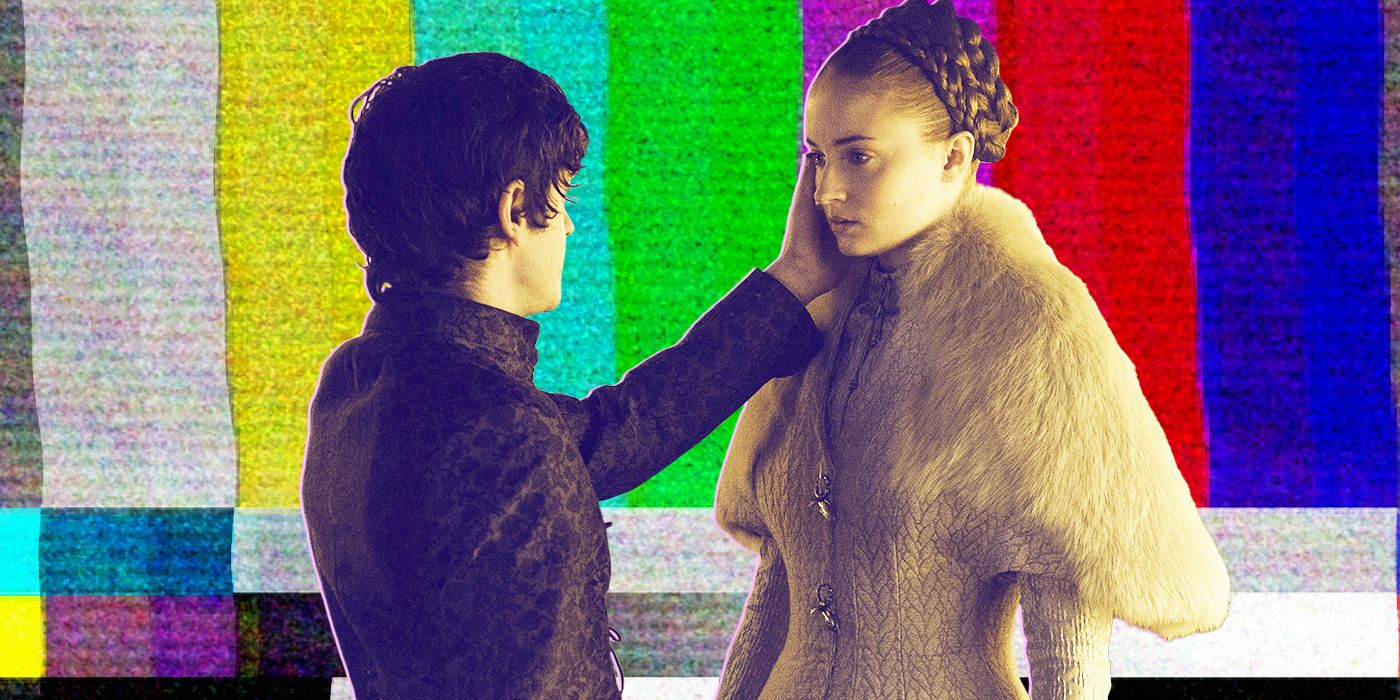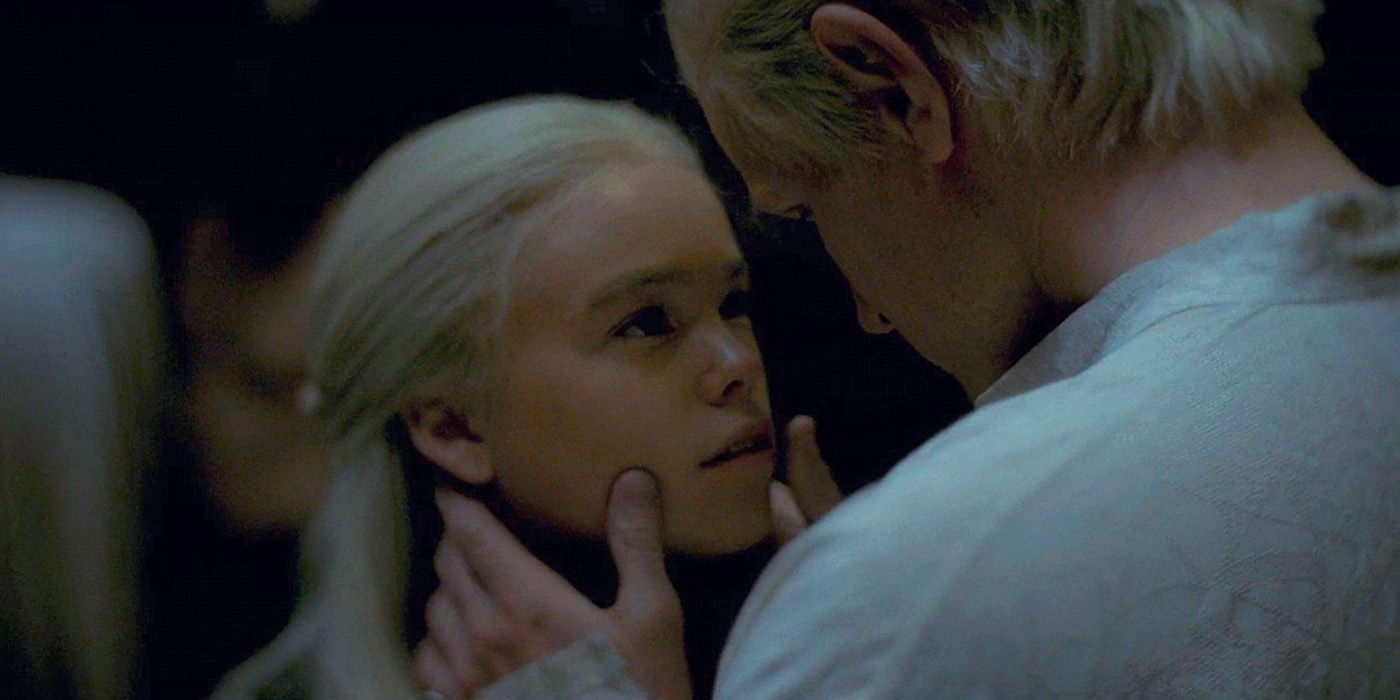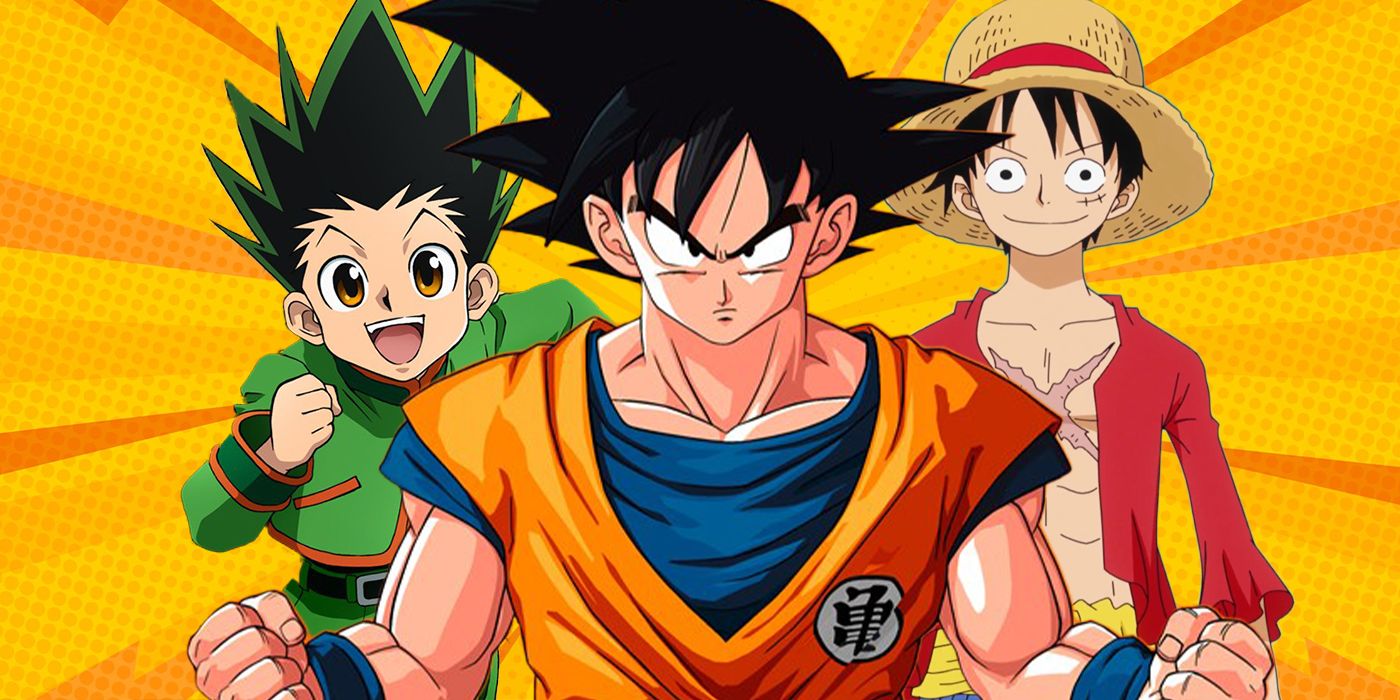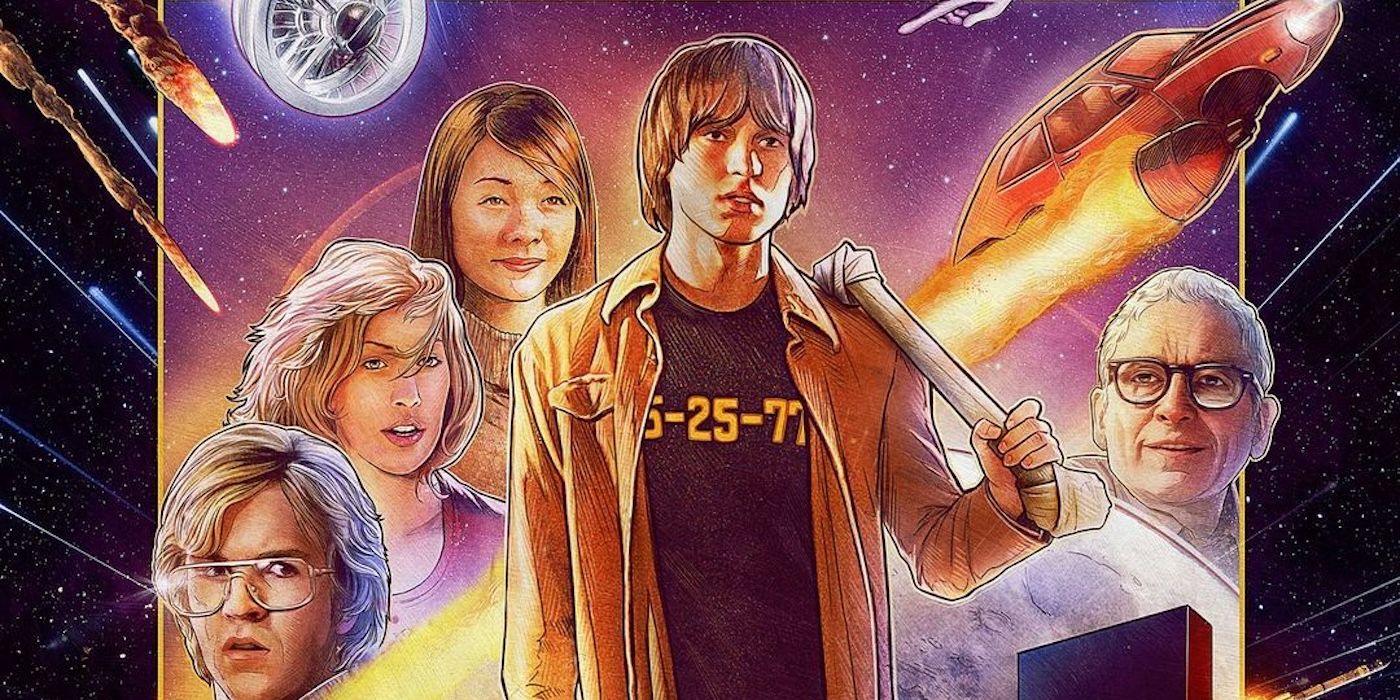The Big Picture
- The controversial rape scene involving Sansa in Game of Thrones was unnecessary and added nothing to the story.
- The scene emphasized Theon’s pain rather than Sansa’s tragedy, leaving a sour taste for viewers.
- The inclusion of an intimacy coordinator in later shows like House of the Dragon led to more meaningful and respectful intimate scenes.
Apart from its fascinating story and a highly disappointing ending, Game of Thrones has always been a subject of discussion for its sensational nudity. There was always a sense that the series was using its sex-fueled scenes to lure in more viewers, if not directly then through word of mouth. Quite often, the series used brothels as a backdrop to develop its plot beats and expositions, flooding the viewers with gratuitous nudity that didn’t add any value to the overall story. Early on there had been debates regarding the necessity of such scenes and if they were actually doing more harm than good. But in Season 5, there was a controversial scene that ultimately dried up the audience’s patience and invited outcry from the fans.
The scene in question comes from the sixth episode titled “Unbowed, Unbent, Unbroken,” where Sansa (Sophie Turner) gets married off to Ramsay (Iwan Rheon). During the night of their wedding, which is now dubbed as the Black Wedding, Ramsay brutally rapes Sansa from behind while forcing Theon (Alfie Allen) to watch. The surprising thing is that this event does not occur in George R. R. Martin’s original books, where a different character is subjected to Ramsay’s brutality, meaning that the creators went off books and out of their way to depict a sadistic scene that wasn’t warranted at all.
Game Of Thrones
Nine noble families fight for control over the lands of Westeros, while an ancient enemy returns after being dormant for a millennia.
- Release Date
- April 17, 2011
- Creator
- David Benioff, D.B. Weiss
- Seasons
- 8
Sansa’s Rape Scene Was Absolutely Unnecessary
The scene received backlash from fans and critics alike, and rightly so. From a narrative point of view, the scene doesn’t really add anything to the story. It’s not as if Sansa hadn’t suffered enough up until this point. She had been forced to watch her father’s beheading and condemn him as a traitor. She was married off to one ruthless, sadistic brat before being married off to another ruthless, sadistic brat. And after all of that, she was raped by Ramsay. Why? What purpose did it actually serve? It didn’t add any depth to Sansa’s character arc as she had already gone through its darkest hour, and pouring more tragedy and trauma into it only had a spillover effect.
The scene didn’t add any more menace to Ramsay either since he was already established to be a despicable character who derived pleasure out of torturing other people. The lengthy and brutal clips of him torturing Theon pretty much ensured everyone would fear and loathe Ramsay. In the end, the only insight offered by the rape scene was into the sadistic nature of the show itself. The only purpose of the scene was to add shock value, and though it did achieve that to an extent, it came at the cost of substance and left the audience with a sour taste in their mouth.
It was already an unnecessary scene, but the creators made it worse by choosing to privilege Theon’s perspective of the tragedy. A big chunk of the scene plays out with the camera shifting its focus on Theon’s face, and letting the audience imagine the gory details as his face shudders and recoils with the painful sounds of Sansa in the background. By doing so, the scene adds an emphasis on the humiliation of Theon rather than the tragedy of Sansa. And in the end, the scene ends up becoming more about Theon’s pain than Sansa’s.
‘Game Of Thrones’ Has Always Had Problematic Sex Scenes
The scene was disturbing to watch for the viewers, but it was worse for the actors involved. Iwan Rheon, the actor who played Ramsay, has opened up about his scarring experience shooting the scene. Speaking to Metro News, Rheon said that he hated every minute of the scene and that it was “the worst day of my career.” But this isn’t the first time that Game of Thrones’ actors have spoken against the gratuitous sexual violence in the series. In 2019, during her appearance in Armchair Expert podcast Emilia Clarke talked about how terrifying it was for her to go through with the scene where Daenerys gets raped by Khal Drogo (Jason Momoa), so terrifying that she often cried before sex scenes.
Since Clarke was fresh out of drama school, she didn’t really know how to participate in the scene which was so intrusive and intense. And she didn’t know where she was supposed to draw the line and say no to scenes that made her uncomfortable. Thankfully, Momoa was with her, and, according to Clarke, he worked really hard to make her feel comfortable. He provided helpful suggestions on how Clarke could proceed with the scene and “was so kind and considerate and cared about me as a human being.” But over the years, Clarke says she became “a lot more savvy” about her own comfort, and in the later seasons, Clarke refused to shoot nudity. Though her refusal was met with resistance from the show’s executives, who reportedly tried to gaslight her into shooting nudity telling her that she would be disappointing the fans with her decisions, Clarke didn’t back down.
Other Game of Thrones’ actors have come forward talking about how the sex scenes had a negative impact on them. Gemma Whelan, the actress who portrayed Yara Greyjoy, has talked about how frenzied, unguided, and awkward the sex scenes were. In the book Fire Cannot Kill a Dragon: Game of Thrones and the Official Untold Story of the Epic Series, Momoa talked about how he was pressured into removing his intimacy pouch, a garment used to cover an actor’s private parts, by the showrunners D. B. Weiss and David Benioff, who reportedly shouted, “Momoa, just take it off … sacrifice! Do it for your art!”
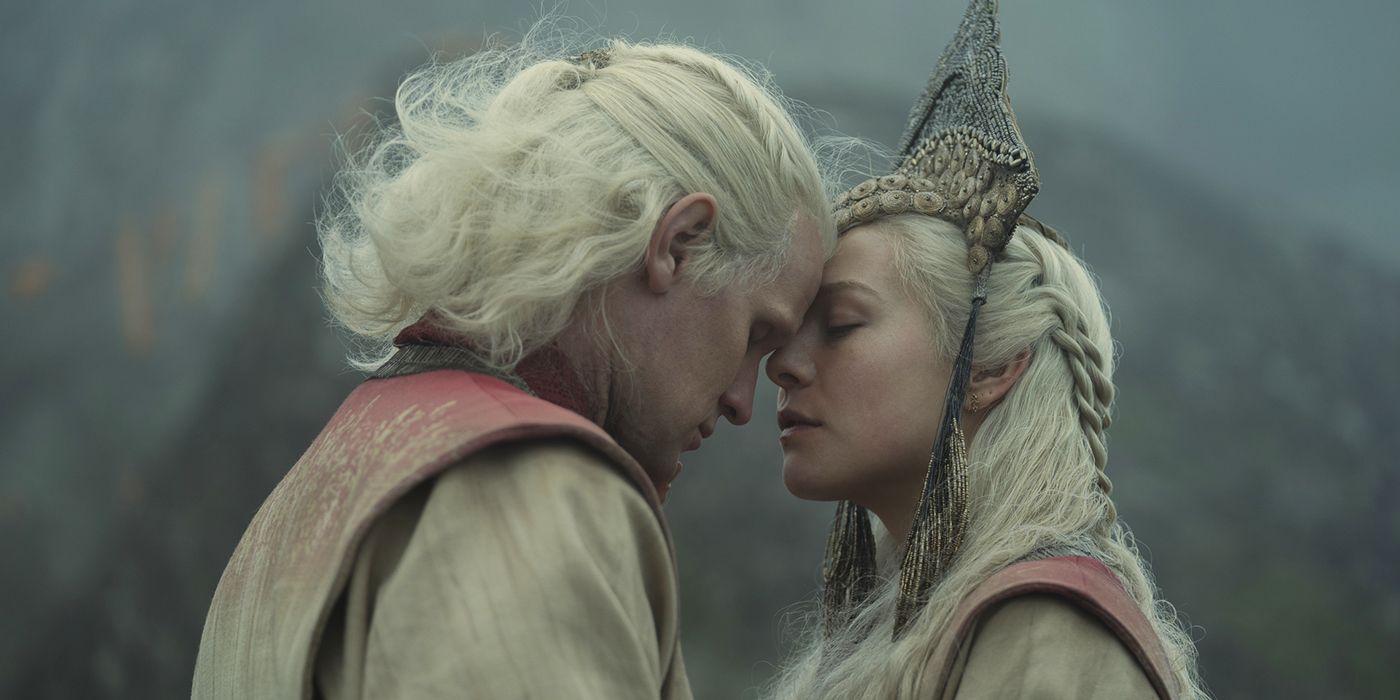
Rhaenyra and Daemon Make a Better Team Than Expected in ‘House of the Dragon’
They’re a major power couple, after all.
How The Industry Is Evolving
One of the main reasons why Game of Thrones was struggling with a dignified portrayal of sexual scenes was because it didn’t have any intimacy coordinator. An intimacy coordinator achieves two important feats for any intimate scene. Firstly, they work to ensure that the actors involved in a sex scene aren’t being pressured into performing the act and that they feel comfortable. And secondly, they make the depiction as realistic as possible. Since Game of Thrones ran without an intimacy coordinator for the longest time, their sex scenes often felt undignified and artificial.
The controversial scene involving Sansa, however, invited an unprecedented level of furor from fans and critics alike. Since the scene premiered when the #MeToo movement was at its peak, it only added fuel to the fire. There were many debates, think pieces, and YouTube videos surrounding Game of Thrones’ intimacy issue. It was clear that something needed to change. Finally, in 2018, HBO announced that every show would mandatorily need to have an intimacy coordinator, with The Deuce being to first HBO show to do so. Since Game of Thrones was already shooting its final season by then, the effects of an intimacy coordinator wasn’t properly visible. But thankfully, we have the next best thing, its prequel House of the Dragon for apt comparison.
Game of Thrones’ sex scenes had an almost nihilistic dimension to them since lust was the only discernible emotion weaved within. The female perspective was often entirely blinded, with sex being used as a tool for men to establish their power and masculinity. Even in a narrative sense, the sex scenes didn’t do much to move the story forward. In contrast, sex scenes in House of the Dragon have intimacy and warmth to them. The intimate scenes between Daemon (Matt Smith) and Rhaenyra (Emma D’Arcy) are so sweet that they feel utterly foreign to the cold world of Game of Thrones. There’s genuine chemistry between the two actors and you can’t help but root for them to be together. The female perspective and pleasure is also taken into consideration in the prequel. Game of Thrones never explored female pleasure in a healthy manner. The show’s idea of exploring women’s desire was by showing a naked man leaving her bed while she sits there somberly. The way these scenes are presented gives a sense that these women aren’t very happy, and, perhaps, even regretful, after their sexual encounter.
But in House of the Dragon, Daemon tells Rhaenyra that pleasure is for both men and women. The same episode shows Rhaenyra (Milly Alcock) craving that pleasure in a brothel with Daemon and then later taking the initiative in the sexual encounter between her and Criston Cole (Fabien Frankel). It’s amazing to realize that all these positive changes have come out of a simple decision to hire an intimacy coordinator. The difference between sexual scenes pre- and post-intimacy coordinator is a universe apart. Now, the sexual scenes feel like they’ve been written with care and dignity considering the experiences and emotions of both parties concerned. Comfort and safety have taken priority over gratuitous lust. And the end result is beautifully crafted intimate scenes that do no harm and are meaningful to the narrative.
Watch Game of Thrones and House of the Dragon on Max in the U.S.
Watch on Max

